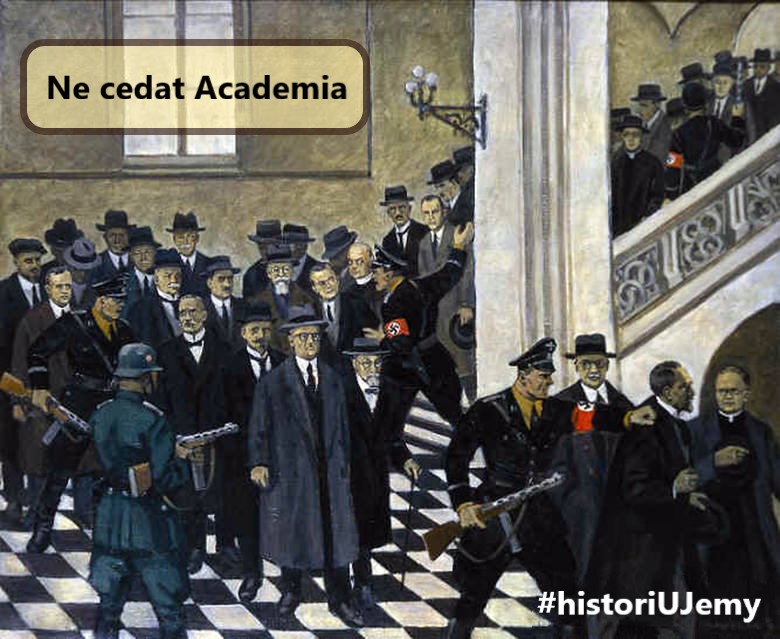Deceit. 6 November 1939. Bruno Müller invites the professors of the Jagiellonian University and other Cracow universities to attend a lecture in Nicolas Copernicus Room no. 66 located in Collegium Novum. His goal was supposedly to present the official German opinion on the question of education in Poland, as he pointedly said. In effect, 183 persons were arrested and taken to imprisonment from Cracow over Wrocław to the concentration camps Sachsenhausen and Dachau. Many perished. The others 'looked like a bunch of beggars' when they were returning.
The darkest hour. Every totalitarian system fears the liberty of thought and education. There was no coincidence in the German policies introduced in occupied Poland which were aimed at the destruction of intellectual elites in order to reduce an entire nation to the position of slaves. After what occurred in Cracow, one of the next stages was the murder of Lwów professors in July 1939. Hans Frank wanted to avoid the 'hassle' he had gone through in the case of Cracow scholars and ordered execution on site.
Although the Cracow professors incarcerated in prisons and camps were denied books and research instruments, their passion and love for education were not taken. Already during the initial days spent in a Breslau prison, zoologist Zygmunt Grodziński used toilet paper (!) to write down two theses, one of them titled 'Blood vessels in the trout brain'. Locked inside prison cells and camp barracks, the scholars organised among themselves numerous language courses, discussions, or readings. The topics varied from the 10th-century journey of Abraham ben Jacob through Slavic lands to vitamins and hormons. Nobody gave up.


